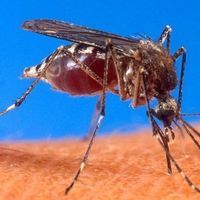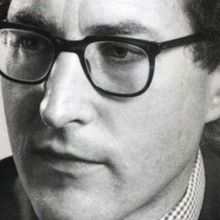central nervous system

Humsa Venkatesh Probes Cancer’s Grip on the Brain
Maddie Bender | Aug 15, 2022 | 3 min read
At Brigham and Women’s Hospital, the cancer biologist is combining research into the tumor microenvironment with the principles of neuroscience to tease apart how cancers grow—and how to stop them.

Through the Looking Glass: Aging, Inflammation, and Gut Rejuvenation
Iris Kulbatski, PhD | Aug 8, 2022 | 4 min read
Renewing the aging gut microbiome holds promise for preventing inflammatory brain and eye degeneration.

Science Philosophy in a Flash - A Look at Aging Through Young Eyes
Iris Kulbatski, PhD | Aug 8, 2022 | 1 min read
Aimée Parker shares how her childlike curiosity and collaborative spirit motivate her scientific pursuits.

Psychological Stress Distracts the Immune System from Fighting Infections
Jennifer Zieba, PhD | Aug 8, 2022 | 3 min read
Acute stress makes immune cells migrate immediately to the bone marrow, which prepares the body for injury at the expense of increasing infectious disease susceptibility.

Molecular Mapping of the Brain Using Spatial Transcriptomics
10x Genomics | Feb 22, 2022 | 1 min read
Spatial representation of gene expression patterns characterizes brain cell types in tissue samples.

The Brain on COVID-19
The Scientist | Dec 21, 2020 | 1 min read
Connecting the dots between COVID-19 and neurological disorders

SARS-CoV-2 Can Infect Human Brain Organoids
Katarina Zimmer | Jul 9, 2020 | 5 min read
The results are a proof-of-concept that the novel coronavirus can replicate in neurons, but it’s too soon to say whether this occurs in people with COVID-19.

Losing Touch: Another Drawback of the COVID-19 Pandemic
Ashley Yeager | May 19, 2020 | 6 min read
Affectionate touches tap into the nervous system’s rest and digest mode, reducing the release of stress hormones, bolstering the immune system, and stimulating brainwaves linked with relaxation.

Bruce McEwen, Stress Hormone Researcher, Dies
Emily Makowski | Jan 6, 2020 | 2 min read
The Rockefeller University neuroendocrinologist made landmark discoveries on how hormones affect brain structure.

Discovery’s Crest: A Profile of Marianne Bronner
Anna Azvolinsky | Dec 1, 2018 | 8 min read
Studying how neural crest cells journey through the embryo, this Caltech developmental biologist has revealed how they form major cell types, including peripheral neurons, bone, and smooth muscle.

Just the Sight of Food Gets the Liver Ready for Action
Abby Olena, PhD | Nov 15, 2018 | 3 min read
In mice, seeing and smelling food causes immediate cellular changes that ready the liver to convert incoming amino acids to proteins.

A Single Mutation in Zika Led to Devastating Effects
Anna Azvolinsky | Sep 28, 2017 | 4 min read
One amino acid change within a viral structural protein makes the difference between mild cases of brain damage and severe microcephaly in mice.

Zika Linked to More Neurological Problems in Adults
Kerry Grens | Aug 14, 2017 | 2 min read
A review of several dozen hospitalized patients in Brazil finds neurological conditions, including inflammation of the brain and spinal cord, in addition to Guillain-Barre syndrome.

Spinal Cord Injury Researcher Dies
Jef Akst | Feb 22, 2017 | 2 min read
Neuroscientist Geoffrey Raisman pioneered the study of spinal cord injury and the use of cell transplants to repair the damage.
